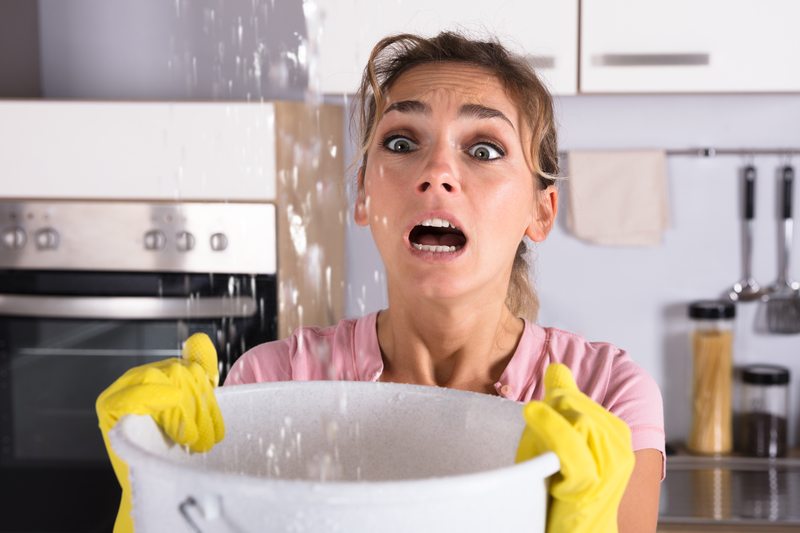Leaking issues in your home can lead to significant damage and costly repairs. Knowing where water could leak in (or burst out from) will help you prepare and prevent issues. By following these tips, you can maintain a safe and secure living environment for yourself and your loved ones.
Maintain Your Roof
Proper roof maintenance is crucial in preventing leaks and water damage. Regularly inspect your roof for any signs of wear and tear, such as cracked or missing shingles, damaged flashing, or clogged gutters. Addressing these issues promptly can prevent water from seeping into your home during heavy rains or storms. It is also essential to schedule regular professional inspections of your roof. This will ensure that any problems are identified and addressed early on before they become more serious. It is important to clean your gutters on a regular basis as debris can build up and clog them, leading to water damage. Trimming back any trees or shrubs near your roof can help prevent branches from damaging your shingles during high winds. Consider investing in a synthetic roof coating. These coatings will provide an additional layer of protection against water damage and can extend the life of your roof.
Install Durable Siding
Durable siding is an integral part of your home’s defense against leaks and water infiltration. High-quality siding can effectively protect your home from the elements and prevent moisture from seeping into the walls. When choosing siding for your home, opt for materials known for their durability and water-resistant properties. One popular choice for homeowners is fiber cements and composite sidings like Trex and HardiePlank. More than 8 million homes use James Hardie siding due to its durability. It has emerged as a reliable choice for safeguarding your property, providing a lasting shield against leaks, and ensuring enduring protection. When selecting siding for your home, it’s important to consider the installation process. Professional siding installers use specialized tools and techniques to ensure a secure fit. If the job is not done correctly, you may end up with gaps or uneven surfaces which can lead to moisture penetration.
Protect Your Pipes
Protecting your home’s pipes is essential in avoiding leaks and water damage. Inspect your plumbing system regularly to check for any signs of leaks, such as water stains, mold growth, or dripping sounds. Address even minor leaks promptly to prevent them from worsening over time. During colder months, take extra precautions to prevent frozen pipes, which can lead to burst pipes and significant water damage. Insulate exposed pipes and keep your home adequately heated to prevent freezing. Regular inspections and maintenance, consider installing water leak detection systems. These systems can detect even small leaks before they become major problems, helping you take preventive action quickly. You should also be aware of the types of materials used in your plumbing system and make sure that any replacements are compatible with the existing pipes.
By incorporating these preventive measures into your home maintenance routine, you can protect your property from water damage and enjoy peace of mind knowing that your home is well-prepared to withstand the elements.
Did You Enjoy Reading This Article? Here’s More to Read: How to Know the Limits of Your DIY Work


